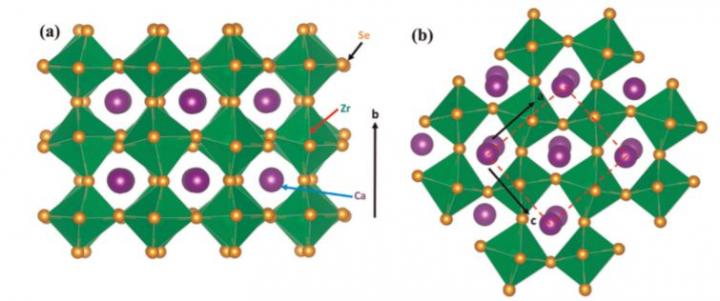Metal chalcogenide perovskites, with their nontoxic elemental composition, are known to offer greater thermal and aqueous stability than organic-inorganic halide perovskites. This means that they may be more suitable than other materials in the perovskite family to address the two biggest issues in commercial solar cell production: low thermal stability and toxicity.
Researchers from Lehigh University in Pennsylvania are now trying to map the lattice thermal energy transport mechanism of chalcogenide perovskite for solar energy use. The material, also known as CaZrSe3, has particularly strong potential for solar energy applications, the researchers said, because it can also be used for waste heat recovery, as a thermoelectric material than can convert thermal energy from the sun to usable electric power. “These materials have an ABX3 crystal structure and possess good optical and electronic properties, conducive for promising thermoelectric performance,” the scientists said.
The researchers analyzed the electronic and lattice properties of metal chalcogenide perovskites through quantum chemical calculations. “The news that energy transport through advanced materials such as chalcogenides can be tuned by nano structuring should be welcomed by other researchers in the field,” said author Ganesh Balasubramanian.
The researchers presented their findings in Ultralow lattice thermal conductivity of chalcogenide perovskite CaZrSe3 contributes to high thermoelectric figure of merit, published in Nature.
Although the study only focused on the material’s thermoelectrical properties, CaZrSe3 has also been proposed for PV applications, especially for thin-film single-junction solar cells. In an earlier study, the same Lehigh University researchers said that chalcogenide possesses an optimum band gap of 1.40 eV for single junction photovoltaic applications.
This content is protected by copyright and may not be reused. If you want to cooperate with us and would like to reuse some of our content, please contact: editors@pv-magazine.com.




By submitting this form you agree to pv magazine using your data for the purposes of publishing your comment.
Your personal data will only be disclosed or otherwise transmitted to third parties for the purposes of spam filtering or if this is necessary for technical maintenance of the website. Any other transfer to third parties will not take place unless this is justified on the basis of applicable data protection regulations or if pv magazine is legally obliged to do so.
You may revoke this consent at any time with effect for the future, in which case your personal data will be deleted immediately. Otherwise, your data will be deleted if pv magazine has processed your request or the purpose of data storage is fulfilled.
Further information on data privacy can be found in our Data Protection Policy.